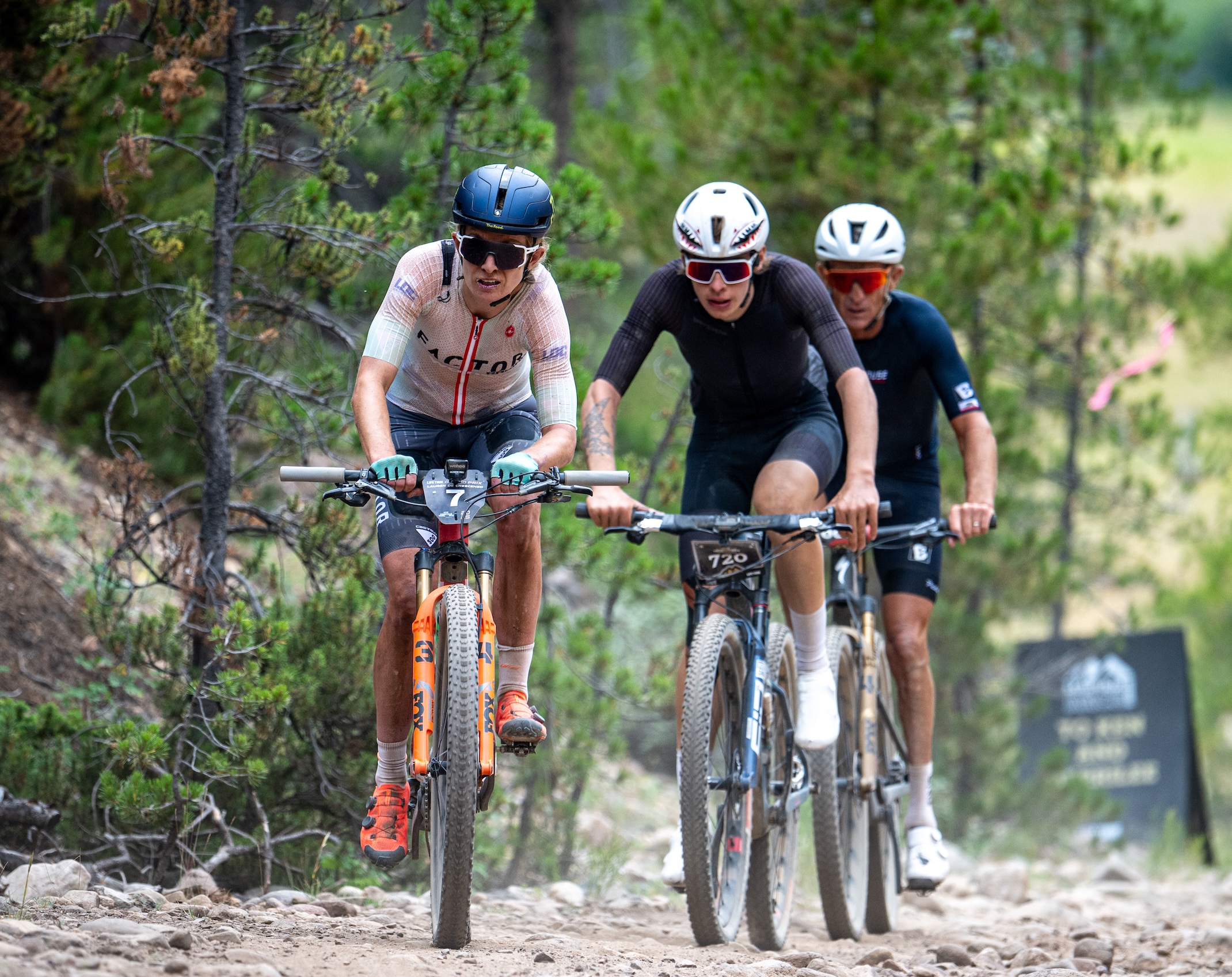Netflix's Tour de France: Unchained - Gino Mäder's death hangs heavily over the second season
A guide to season 2 of the Netflix Tour de France series
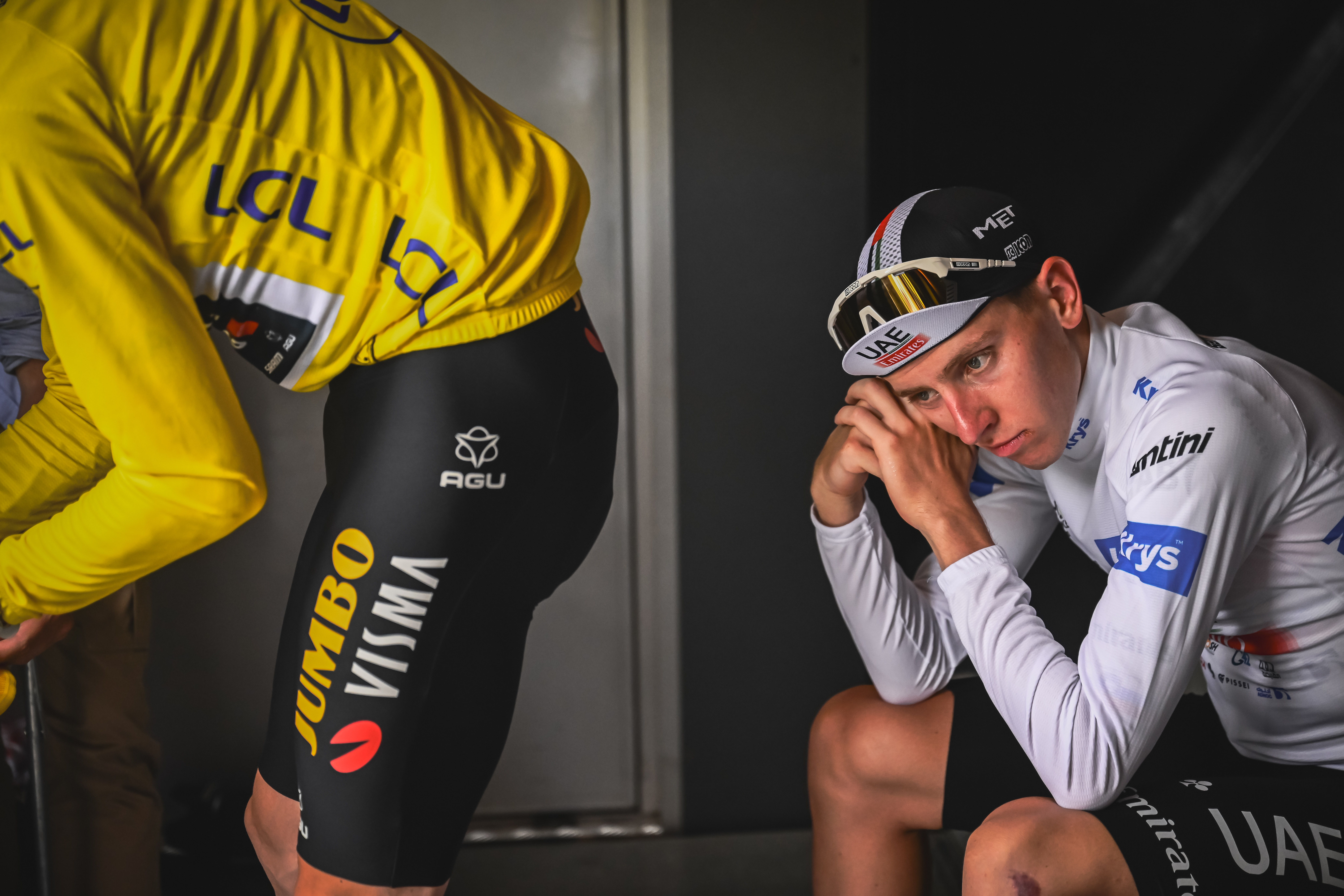
The latest race content, interviews, features, reviews and expert buying guides, direct to your inbox!
You are now subscribed
Your newsletter sign-up was successful
Cycling is supposed to be having its moment. Netflix and the Tour de France organisers hoped to drive a huge influx of new fans to pro cycling via the Tour de France: Unchained series. Can the second season push fans into the sport like Drive to Survive did for Formula 1?
Previewing the series before today's release, one major flaw stuck out that will probably prevent the series from tapping into the US market like Drive to Survive did: The biggest influx of new fans to F1 came from North America and it might be that Unchained: Tour de France is too French to have the same effect.
Netflix France was behind the show and it seems as if they formulated a script to appeal to the home base rather than to try to reach across the Atlantic. The show uses Steve Chainel and Orla Chennaoui as narrators, giving a nice balance between a pro commentator and ex-professional cycling. While Chainel has great insights, there are numerous established English-speaking former pro commentators who could have provided the same service without the subtitles.
Having to read subtitles isn't a big problem for most Americans, especially younger generations who watch TV with the closed captions on even if it's in their native language, but the way the subtitles jump between the bottom of the screen and the top and disappear amid light backgrounds was super frustrating and distracted from the content.
The season also spends more time on French riders than on other stories that are more appealing to Netflix's largest customer base in North America, and it spends too much time on a petty squabble between team managers Richard Plugge and Marc Madiot without really getting to the heart of the issue.
There were 22 teams in the 2023 Tour de France but if you watch Unchained, you wouldn't know it. Lidl-Trek are hardly mentioned and Mads Pedersen's win on stage 8 is skipped over in between episodes 3 and 4.
Even with a French production, the series overshadows Cofidis' first stage win in 15 years, framing Victor Lafay's stellar stage 2 victory as a massive failure for Wout van Aert. Movistar, DSM, Intermarché, Israel-Premier Tech, Jayco-AlUla, Arkéa-Samsic, Lotto Dstny, Uno-X and TotalEnergies hardly get a mention.
The latest race content, interviews, features, reviews and expert buying guides, direct to your inbox!
Yes, teams have to sign on to be in the series but how realistic a portrayal of the Tour de France is it if half of the peloton is completely ignored?
From the teams that are featured, there is plenty for even the most devoted cycling aficionados to enjoy, with pre-race interviews in riders' homes and other never-before-seen moments. The in-race visuals are stunning and the production reproduces the feeling of being on the Tour by amping up the contrast between the raucous noise of the crowds on the climbs and the silence on the descent.
The series does a great job of digging deep into topics like how Bahrain Victorious riders cope with the tragic death of Gino Mäder, AG2R La Mondiale's inner struggles after Ben O'Connor's GC ambitions evaporated, and Thibaut Pinot's search for glory in his final Tour.
However, the outline of the series is also somewhat disjointed as the producers backtrack to follow different storylines, and like the race itself, the thrilling battle between Tadej Pogačar and Jonas Vingegaard is over before the show's season, making the last couple of episodes a French-focussed denouement.
While there might not be as much broad appeal as the producers hoped, the seasoned cycling fan will find it hard to stop bingeing.
Episode 1: No Risk, No Reward
The series opens with in-home interviews with Julian Alaphilippe, Thibaut Pinot, and Tadej Pogačar, highlights Pogačar's crash in Liège-Bastogne-Liège, and has one very poignant scene from AG2R's training camp where the team's trainer has to tell Ben O'Connor that his friend Mäder has died. Two weeks later, Mäder's teammates and friends have to start the Tour de France. Alaphilippe sums it up: "It makes you realise you're nothing on this earth - we're nothing, especially me on a bike".
The rest of the episode focuses on EF-EasyPost's GC hopes evaporating when Richard Carapaz crashes and ends with Lafay's stage win. Unfortunately, even though the American team were signed on to star in the series, most of their coverage ends along with Carapaz's abandon.
It seems as if the producers started with who won and worked their way backwards to find the good stories rather than the other way around, and that's not how pro cycling works.
Episode 2: The Third Man
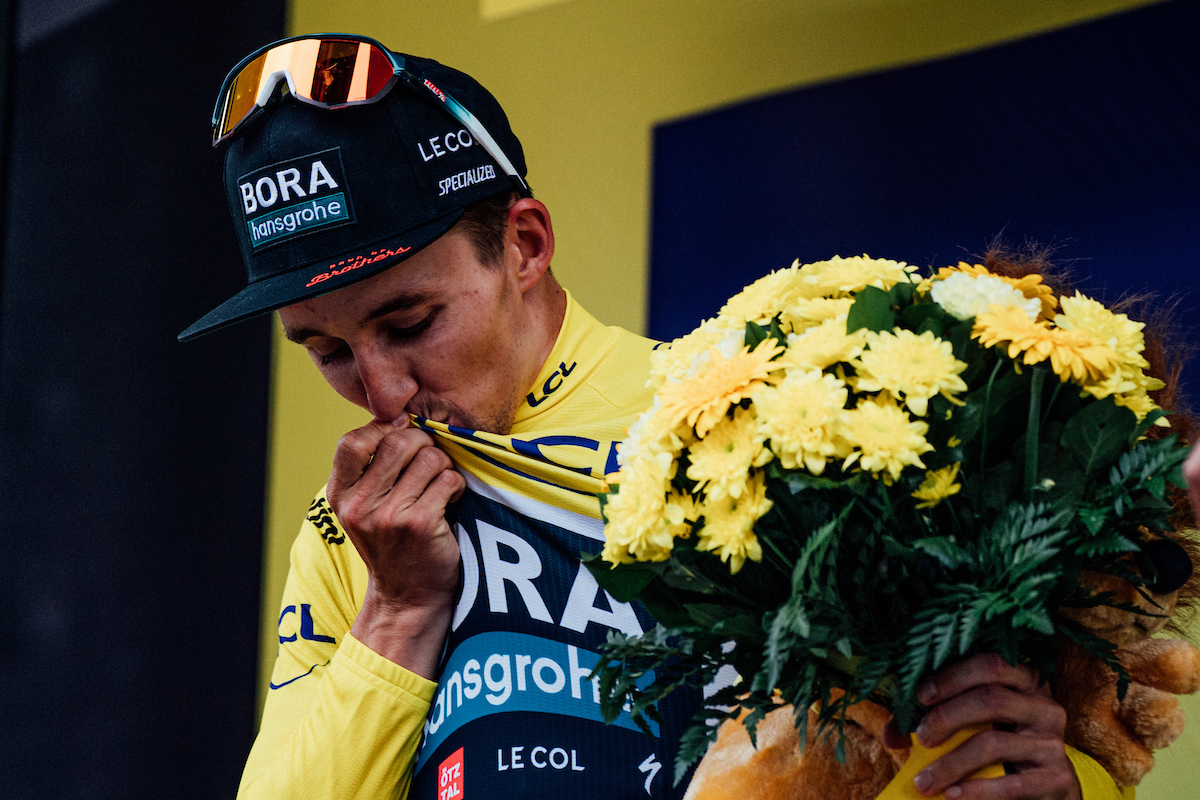
This episode focuses on Ben O'Connor's GC hopes, which started to evaporate on stage 4 and contrasts his fortune and his personality with compatriot Jai Hindley (Bora-Hansgrohe), who took the yellow jersey on the same stage. O'Connor comes off as quite whiny, negative and a bit entitled compared with Hindley, which hardly seems fair. He gets a chance for his gracious side to show later on in the season, however.
This episode also features Pogačar's time loss on the stage and his comeback on the next stage.
Striking: this episode made me wonder what Grischa Niermann did to deserve such an unflattering camera angle.
Episode 3: No Mercy
Jasper Philipsen gets his well-deserved highlight, transforming from 'Jasper disaster' in season 1 to the best sprinter in the race. He even folds his clothes! We also get to see Mark Cavendish and Fabio Jakobsen's races get ruined by crashes.
The episode looks back on Van Aert's horrific 2019 Tour de France crash and zooms in on the massive scar on his hip during a massage.
Striking: There's something vaguely unsettling about how Alpecin-Deceuninck director Christoph Roodhooft is framed in shadows as if they're trying to portray him as a crime boss - telling Philipsen to push the other sprinters.
Surely he didn't mean it literally but Roodhooft's comment makes it seem like the ensuing incident where Philipsen boxed Van Aert in along the barriers as the road curved as planned.
Episode 4: For Gino
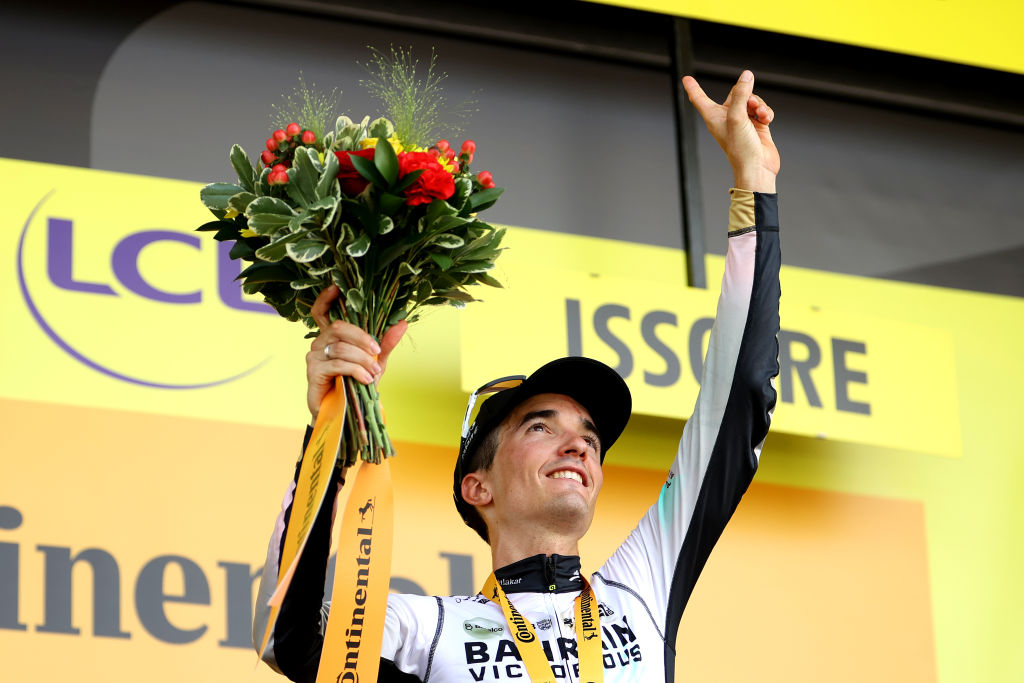
Bahrain Victorious feature heavily in this episode as the team fight to win a stage in memory of Mäder. Pello Bilbao and Matej Mohorič come away as the most human characters in the entire season, and neither can contain their emotions when talking about their fallen teammate but use their grief as motivation.
Mohorič climbs out of his skin amid the dead silence on the Puy de Dôme but is passed by Michael Woods and misses the stage win. Then, Bilbao gets the win on stage 10 and the emotion comes pouring out in the post-stage interview.
It's too bad the show decided to interrupt this compelling life-and-death storyline to fold in more drama between O'Connor and his AG2R management as they switch GC focus to Felix Gall.
Striking: In context, Bilbao's interview is even more powerful than it was on the day, and there wasn't a dry eye in the house last July.
Episode 5: The Enemy Within
We get a rare look inside the headless Ineos Grenadiers team who are in their first Tour de France without a podium contender. No spoilers, but Tom Pidcock doesn't come off well as the team find Carlos Rodriguez to be the more dependable GC rider.
Striking: Tom Pidcock jokes he's going to attack over the top of the Joux Plane and descend to the win before stage 14 but it's Rodriguez who actually does it. Editing or fact?
Episode 6: Domination
The yellow jersey contenders finally come back into focus after four episodes of sideshows. Unfortunately, the 15 stages where the battle was excruciatingly tight ended up largely on the cutting room floor to make room for the crushing performance of Vingegaard in the stage 16 time trial, and the subsequent speculation about doping. Groupama-FDJ seem to be the main instigators of the trash talk as a foreshadowing.
Striking: The best part of the episode is the race director's car stalling out on the climb to Courchevel - the cameras provide a real feeling of frustration and panic - and Gall's reaction to his stage win. The worst was poor Pogačar's devastating collapse.
Episode 7: Kamikaze Mission
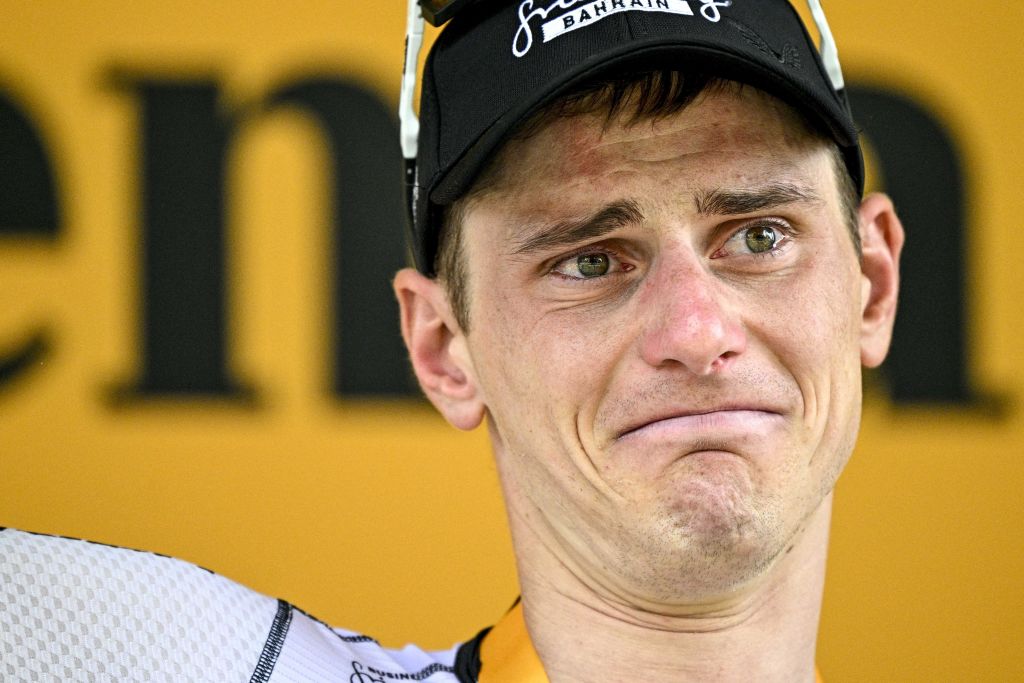
Soudal-Quickstep is the focus of this episode. With Fabio Jakobsen heading home due to his crash injuries, the team are facing their first Tour de France in decades without a stage win. Kasper Asgreen to the rescue! It's too bad Lotto Dstny weren't part of the series because Victor Campenaerts deserved to be featured after ensuring that the breakaway succeeded only for his teammate Pascal Eenkhoorn to get beaten.
The episode ends with more Mohorič - including some footage of him training in Slovenia and revealing how much analysis he does about every aspect of cycling. The episode brings together all of the previous ones when Mohorič, O'Connor and Asgreen end up in the three-man breakaway on stage 18 and Mohorič gets the team's third stage win.
Striking: What happened to Wout Poels' victory on stage 15? Was he not emotional enough?
Mohorič's post-stage interview - with him explaining how cycling is cruel because only one rider can win, and 'you almost feel like you've betrayed them because you beat them' - is stitched in beautifully with clips of Asgreen being frustrated.
This should be the first episode to show to any non-cycling fans who want to get into the sport.
Episode 8: The Last Dance
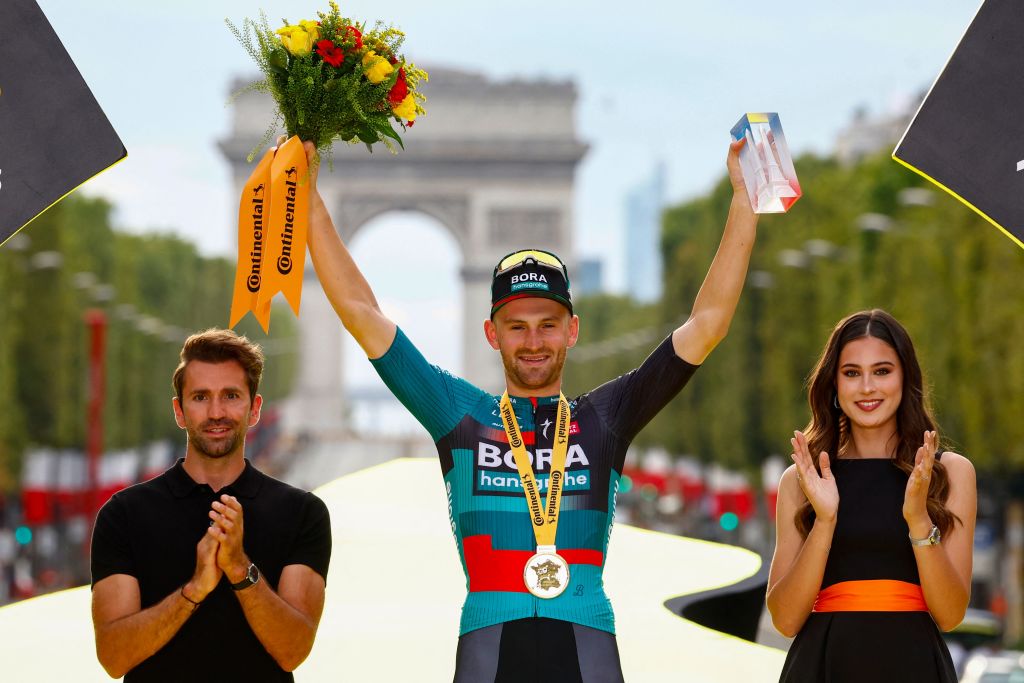
What should have been a wrap-up of a thrilling Tour de France descends into that previously mentioned petty squabble. The episode begins with Marc Madiot having to explain to his riders how Jumbo-Visma boss Richard Plugge has said the team aren't serious because they drink beer during the Tour.
It's classic deflection by Plugge, going on the attack to change the narrative over speculation that Vingegaard must be doping because of his huge winning margin. So, when Madiot refuses to just laugh it off, Plugge wins. The final episode is too much about whether or not Groupama-FDJ riders drink beer.
Thibaut Pinot's final chance at glory has some great in-race visuals of his supporters crowding the roadsides and then booing at Vingegaard. "Thanks for that, Richard," Niermann says as we can hear impacts on the of who-knows-what on the team car.
We get to see Pogačar out-sprint Vingegaard to win stage 20, and Meeus winning the final sprint stage but if the Netflix producers wanted to make this show memorable to non-cycling fans to get them interested in the sport, one has to question why they spent so much time on Groupama-FDJ's beer consumption.
In between Mäder's death and the final stage of the 2023 Tour de France, there are many moments not captured in this season of Unchained that could have made for a better series. However, the eight episodes are still must-see watching for a cycling fan.
Striking: After Jordi Meeus wins the final stage ahead of four-time stage winner Jasper Philipsen, Bora-Hansgrohe's DS Rolf Aldag actually says that Meeus "is the only sprinter to beat Philipsen in the whole Tour de France" - and the directors fail to correct that - Mads Pedersen beat him on stage 8.

Laura Weislo has been with Cyclingnews since 2006 after making a switch from a career in science. As Managing Editor, she coordinates coverage for North American events and global news. As former elite-level road racer who dabbled in cyclo-cross and track, Laura has a passion for all three disciplines. When not working she likes to go camping and explore lesser traveled roads, paths and gravel tracks. Laura specialises in covering doping, anti-doping, UCI governance and performing data analysis.
